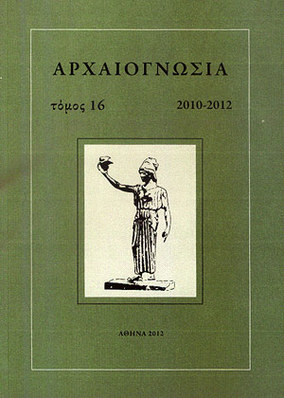Παρατηρήσεις στη μυθιστορία του Αισώπου
Part of : Αρχαιογνωσία ; Vol.7, No.1-2, 1991, pages 29-40
Issue:
Pages:
29-40
Parallel Title:
Observations on the Aesop romance
Section Title:
Μελέτες-Articles
Author:
Abstract:
This paper deals with three problematic points of the Perriana version (or Vita G) of the Aesop Romance:1. The reading of cod. G (fol. 26', 20 - Perry, ch. 13, p. 39, 22) οικονόμος ( with aspirate) wàs corrected by Perry to <ό> οικονόμος (with smooth breathing). M. Papathomopoulos, however, rejects Perry’s emendation and adopts the reading of the codex believing its aspirate is due to crasis («ό οικονόμος» = «οικονόμος»). Our research leads to the conclusion that crasis, especially as a fusion of the forms of the article «ό» or «ή» with vowel or diphthong, was extremely rare when the text was composed and does not really occur in the Perriana. Hence, οικονόμος is indefensible as a genuine reading and Perry’s correction is right.2. The reading βυζοκάλαμος in G ( fol. 26\ 16 - Perry, ch. 14, p. 39, 34), which Perry changed to βιζοκάλαμος is corrected to βοιζοκάλαμος. It is known that the alternation of «οι» and «υ» is observed from 2nd century B.C. on resulting in orthographic confusion. The word βοιζοκάλαμος («βοίζος» + «κάλαμος») denotes musical wind instrument from reed, which produces a whistling or piping sound («βοϊζον» / «βϋζον»). In this instance it seems to be a name for a kind of bugle (σάλπιγξ).3. Finally, the reading άρών (G, fol. 29', 14 - Perry, ch. 19, p. 41, 24), which M. Papathomopoulos changed to άρας, is genuine and should be retained. It is a form of the aorist's participle of the verb «αίρω» and is attested at least in another source as well.
Subject (LC):




